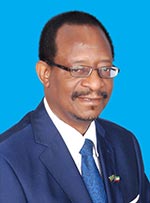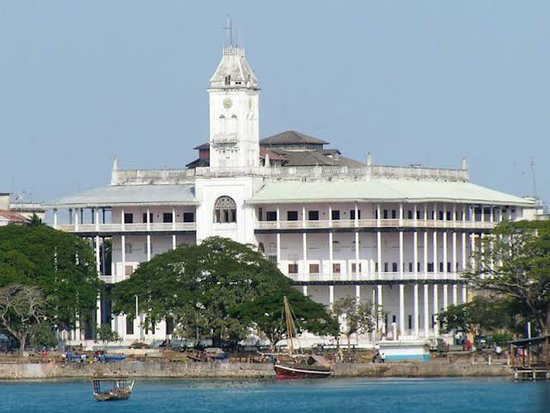 H.E. Said S Mussa
H.E. Said S Mussa
Ambassador of Tanzania
Exclusive to The Times Kuwait
Embassy of Tanzania in collaboration with Talk, an innovative cultural hub in Kuwait, commemorated World Kiswahili Language Day on 7 July at the Talk center in Kuwait. The event was attended by around 150 participants from all walks of life.
The reason why 7 July was selected as World Kiswahili Day traces back to the same day in 1954, when the former president of Tanzania and father of the nation, Julius Kambarage Nyerere, declared that promoting Kiswahili was an important tool in the fight for independence. In the contemporary perspective of multilingualism, Kiswahili language has grown as an essential tool in harmonious communication between people worldwide.
Due to substantial growth of Kiswahili language, the United Nations General Assembly, through its resolution 71/328 of 11 September 2017, on multilingualism, welcomed implementation of a day dedicated to each of its official languages in order to inform and raise awareness of their history, culture and use. The General Assembly also urged the Secretary-General and institutions such as the United Nations Educational, Scientific and Cultural Organization (UNESCO) to consider extending this important initiative to other non-official languages spoken throughout the world.
Linguistic diversity and multilingualism are domains of strategic importance that UNESCO promotes in all fields of its mandate through an interdisciplinary approach involving all program sectors. In view of the growing popularity of the Kiswahili language, the General Conference of UNESCO at its 41st session in 2021 proclaimed 7 July as the World Kiswahili Language Day.
The inaugural celebrations of the World Kiswahili Language Day were held in 2022, at UNESCO HQ and worldwide, under the theme: ‘Kiswahili for peace and prosperity’. The 2023 Edition of the World Kiswahili Language Day was celebrated under the theme ‘Unleashing Kiswahili’s Potential in the Digital Era’.
The origin of the Kiswahili language can be traced back many centuries, through interactions among African coastal communities and Arab traders, mainly along the Eastern coast of Africa. The name ‘swahili’ comes from an Arabic word ‘sawahili’, a plural adjective meaning ‘of the coast’.
With over 200 million active users, Kiswahili is now recognized as one of the official languages of the African Union (AU), Southern African Development Community (SADC) and East African Community (EAC). Kiswahili has also emerged as an indispensable pillar for the cultural and economic integration in Africa, including for the Implementation of the African Continental Free Trade Agreement (ACFTA). Kiswahili has been recognized as an important tool in Africa’s pursuit to achieve the United Nations 2030 Sustainable Development Goals (SDGs) and the African Union Agenda 2063.
By 2030, young Africans are expected to constitute 42 percent of global youth. As a majority of these young people will speak Kiswahili, it is important that digital resources and youth-savvy ICT tools are developed to promote an effective use of this language.
The continent’s youthful population offers an enormous opportunity in the digital era and should be equipped with appropriate digital resources and tools to popularize Kiswahili language. This can present a good basis to harness the demographic dividend of the youth and help navigate Africa to benefit from the 4th and 5th industrial revolution.
The Kiswahili speaking people are from diverse ethnic groups who use Kiswahili as their mother tongue or first language; while for others, it serves as a lingua franca, a trade language used to bridge the communication gaps between people of different first languages.
Kiswahili — being one of the African languages with more than 200 million speakers, and recognised as among the 10 most widely spoken languages in the world that have also been accepted for use in Information, Communication and Technology (ICT) — plays an important role in ICT use.
Kiswahili has gained popularity beyond its traditional confines in Africa and is gaining popularity and support in America, Europe and the Far East, where it is taught in many universities. Kiswahili is also used internationally in broadcasting, advertising and publishing. Kiswahili is therefore an important vehicle for spreading the design and use of ICT.
Currently many Africans acquire ICT skills using foreign languages. However, as a large percentage of the population do not speak foreign languages, they have limited prospects to benefit from the ICT revolution. Therefore there is a great need to develop and enhance the use of digital services and resources in local languages. It is against this background that this year’s celebrations fostered inclusivity, augment accessibility and bridge the digital divide in Africa using Kiswahili.
Kiswahili is the first African language in the whole of Africa to be used in computers. The choice of Kiswahili by software developers, including Microsoft and Linux, was influenced by various reasons, besides its popularity, its simplicity to learn, its recognition and widespread usage in Africa and its increasing popularity and support in the Middle East, America, Europe and the Far East.
Unleashing Kiswahili’s Potential in the Digital Era will definitely contribute to the enrichment of UNESCO’s values such as the promotion of peace, culture and intercultural dialogue. Multilingualism is essential in harmonious communication between peoples as it serves as an instrument for international understanding, tolerance and dialogue.
Languages play a vital role in development, not only in ensuring cultural diversity and intercultural dialogue, but also as a tool contributing to quality education for all and to strengthening cooperation. Languages are key in building inclusive knowledge societies, preserving cultural heritage, and harnessing science and technology for sustainable development. Thus, if we are striving to create a digitally connected Africa, Kiswahili holds the key.
The 2023 Edition of the World Kiswahili Language Day was held under the theme ‘Unleashing Kiswahili’s Potential in the Digital Era’ in cognisance of the increasingly important role of ICT in the achievement of the United Nations 2030 Sustainable Development Goals (SDGs) and the African Union Agenda 2063.
The spotlight will be placed on Kiswahili as a vehicle for harnessing ICT, taking into consideration the demographic dividend of African youth. The growing use of the internet and other digital technologies has transformed societies which could have lasting impact on language. Likewise, ICT should be used as a tool to promote Kiswahili usage, globally.
In conclusion, the Embassy of the United Republic of Tanzania to the State of Kuwait will continue with its role and responsibility to promote values, ideas and philosophy of the Kiswahili language in Kuwait among various groups through social media programs, workshops and other cultural activities. Moreover, understanding the Kiswahili language is an added advantage for those interested to visit the East Africa Region and Tanzania in particular.

















